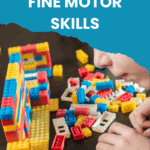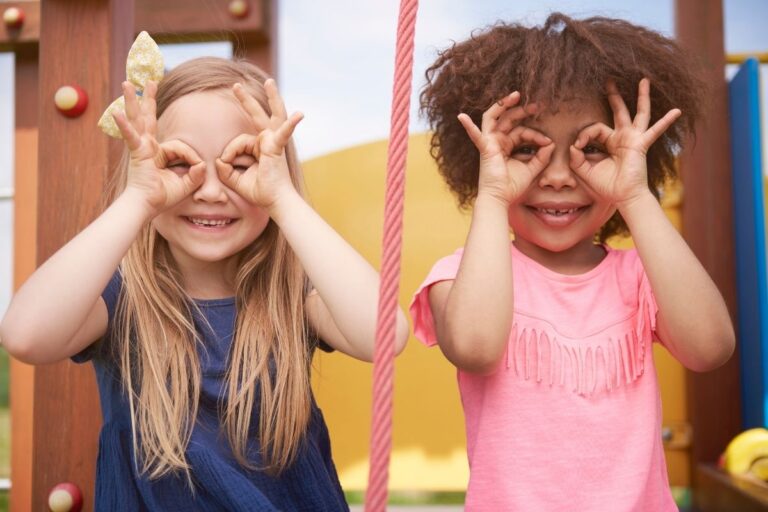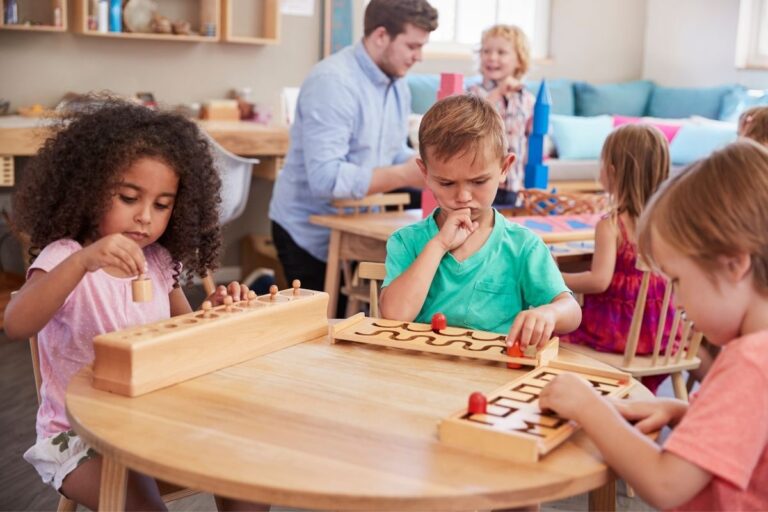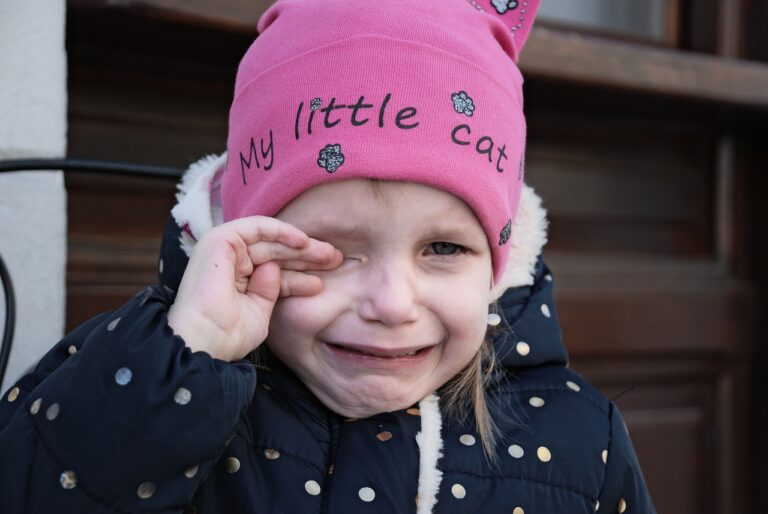The Undeniable Importance of Fine Motor Skills in Child Development
Have you ever sat down and observed a young child, maybe your own little one or a niece or nephew, as they carefully tried to pick up a tiny item using just their thumb and index finger? It's a bit like watching a character from an old-timey movie gently holding a precious gem, isn't it? These small movements, which might seem like everyday tasks, actually tell us a lot about the importance of fine motor skills in child development. Curious about what such a simple act can reveal? Let's explore this further and see what big stories these little actions can tell.

Why are Fine Motor Skills So Essential?
Play. Learn. Thrive.™ only endorses products we authentically love and use. Some of the product links in this post may be affiliate links. That means that if you click them and make a purchase, this site makes a commission. Play. Learn. Thrive.™ is also an Amazon Associate. As an Amazon Associate, we earn from qualifying purchases. It will have no impact on the price you pay or the experience of your purchase.
Have you heard of Leonardo da Vinci? Most of us know him as the genius artist behind masterpieces like the Mona Lisa. But what made him so special was more than just his art. Leonardo had an amazing ability to coordinate his hands and eyes, something we call hand-eye coordination. This ability made him shine not just in art, but also in science. And guess what? Just like building with blocks as a kid leads to constructing big buildings as an adult, the foundation for Leonardo's skills started when he was a little child, developing his fine motor skills.
Now, let's break that down a bit. What are fine motor skills? Imagine trying to flip the pages of your favorite book, play a tune on a piano, or thread a needle. All these tasks require the use of our smaller muscle groups, especially in our hands. That's what we call fine motor skills. On the other hand, when you think of activities like jumping, dancing, or swinging your arms, you're using your bigger muscles. These are what we refer to as gross motor skills.
But here's where things get super interesting. Imagine if you couldn't do simple things in your daily life, like buttoning your shirt, tying your shoes, or even just holding a pencil to write your name. Sounds tough, right? That's because these everyday tasks need good fine motor skills. Without them, even the smallest tasks can feel as tricky as climbing a mountain! So, when we see young children focusing on picking up small items or drawing with crayons, they're actually practicing and building those vital skills.
Understanding the Development and Importance of Fine Motor Skills
Have you ever watched a baby, just a few months old, staring at their hands in wonder? Or perhaps you've giggled as they try to grab a small toy or even a piece of cereal using their thumb and index finger? This simple act is known as the ‘pincer grasp,' and it's like the opening act of a play that sets the stage for the main event. It's one of the very first signs that a child is beginning their journey in fine motor development.
Think of it like planting a tree. Initially, the tree is tiny, just a sapling with tender leaves, similar to a baby's early hand movements. But as the tree grows, its branches spread out, becoming stronger and more intricate, just like how children's movements evolve and become more refined.
But here's an essential thing to remember: not all trees grow at the same rate. Similarly, not all children develop these skills at the same pace. It's like reading stories of historical figures. Some rose to fame quickly, while others took their time. In the same way, while one child might easily string beads to make a necklace, another might find it challenging.
That's where the superheroes of child development, the pediatric occupational therapists, come in. They're like the gardeners who know just how to nurture and provide the right environment for growth. They can help those children who might need a little extra attention and guidance in strengthening their fine motor skills, ensuring every child gets the best start in their fine motor journey.
Why Should We Prioritize Fine Motor Activities?
Why should we make a big deal about the ‘little things' like playing with play dough, threading beads, or scribbling with crayons? Why should we encourage kids to trace along a dotted line or even just pick up small objects?
Well, it's because these small tasks, these fun games, have a much bigger role in a child's life than we might realize at first glance. Here's why. Imagine you're a kid and you're trying to button up your shirt, but your fingers just won't cooperate. Or perhaps you're attempting to write your name, but the pencil feels too awkward in your hand. It can be really frustrating, right? And when kids feel frustrated or left out, it can hurt their confidence and the child's self-esteem. Just like adults, when they can't do something they want to, they might feel down or upset.
These “little things,” these fine motor activities and refined movements, help a child in many areas of their life. When they strengthen their hand muscles by playing with play dough, or improve their eye-hand coordination by threading beads, they're not just having fun. They're building essential skills that will help them in school, in sports, and even in making friends. It's like laying down the building blocks for their future.
Remember when you were a child? Think back to those moments you tried tying your shoelaces, turning the pages of a book, or stacking small blocks. It might have seemed like just play, but it was much more than that. These activities helped develop your bilateral coordination (that's a fancy way of saying using both sides of your body together) and your visual perception (how you see and interpret things). And these skills, in turn, are super important when it comes to reading, writing, and other academic skills.
So, every time a child picks up a crayon or plays with small toys, they're not just passing time – they're preparing for the bigger challenges ahead in their life. As the saying goes, “It's the little things that count,” and in the world of child development, this couldn't be more true.
Laying the Foundation: How Can We Step In?
When you think of professionals working with children, who comes to mind? Maybe pediatric occupational therapy, or those early childhood educators in schools and nurseries. What do they often emphasize? Yep, you guessed it: development of fine motor skills.
But why is this so crucial to early childhood development? Let's break it down a bit.
Imagine you're helping a child build a tower using toy blocks. Each block is like a small skill or activity they learn. One block might be learning to hold a pencil, another could be tying their shoelaces, and yet another might be playing a tune on a musical instrument. As they stack more and more blocks, their tower – or their overall ability – grows taller and stronger. But if they miss out on some of those foundational blocks, their tower might wobble or even fall.
That's where we come in. Whether we're parents, grandparents, aunts, uncles, teachers, or caregivers, we can provide these essential building blocks. By including fun fine motor skill activities in their daily routine, we're essentially giving them the tools to build a sturdy, tall tower. Simple things like playing with toys, scribbling with crayons, or even practicing on musical instruments can make a huge difference.
And here's something to ponder: think of the greats in history, like Leonardo da Vinci. Can you imagine him painting the Mona Lisa without having developed those critical hand skills during his younger years? It's hard to picture, right? Just like da Vinci, our young ones have the potential for greatness, for creating their own masterpieces, making discoveries, and changing the world. But they need those foundational ‘blocks' or skills first.
So, while fine motor activities might seem like ‘small stuff,' their significance is enormous. These little movements, these daily activities, are like the unsung heroes behind every successful adult. The impact of these skills, although they start small, grows to be boundless as our children navigate the vast world around them. It's our role to ensure they're well-equipped for the journey ahead.







